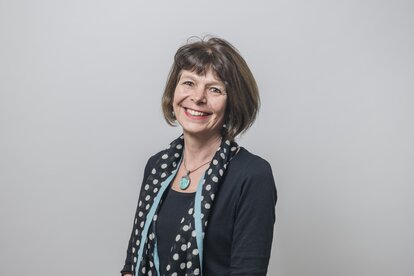This week I received an email from Inês Domingos, our Gender and Social Equity Focal Person in Mozambique. She was informing me about a Terraço Alberto – literally, Open Terrace – on gender relations that was held recently on the occasion of Mozambique’s national Women’s Day. The Terraco Alberto is a rather special forum for debate devised and sponsored by Helvetas. It gives people of the Northern district town of Pemba the opportunity to hear different viewpoints and express their own opinions in a politically neutral environment. In a country of highly divisive politics, such a forum is widely appreciated, and attracts considerable media coverage. Short inputs from invited speakers are followed by comments from the audience.
On this occasion, the three speakers comprised representatives of the Provincial Department of Women and Social Action (DPMAS), the Gender Theme Group (a civil society network of specialists working on gender issues) and a Helvetas project called Ocupali. The DPMAS representative spoke about support for women in local councils, the empowerment of women in government institutions, and the encouragement of women’s leadership. From the Gender Theme Group, there was a reflection on the changing perceptions of women’s role – before independence (when their focus and role was largely domestic), during the war (when they played an active role) and after independence (when international discourse on the rights of women has come to the fore). She stressed the importance of supporting women to demand that their rights are met. From Ocupali, the audience heard about practical project activities supporting women’s literacy, savings and credit, and awareness-raising amongst traditional leaders and community courts on the rule of law with regard to women’s rights.
According to Inês, there was no visible disagreement among participants about the difficult situation of women in Mozambique; instead, the debate focused on how this could be improved. Five arguments stood out: access to formal education; enhanced incomegenerating opportunities; improved family and community relations; collective action amongst women to demand their rights; and an increase in women’s self-confidence. In other words, the audience essentially recognized all four strands of empowerment that are generally considered in more academic discourses on the topic (respectively: power to; power over; power with; and power within). Some of the observations made are paraphrased below.
"Here women are still limited in what they can do, and they are also exploited. Women are used for parades, and for the tourist industry. But when it comes to making important decisions, they feel unable to speak, to express their ideas….What the man says and thinks is important; what she thinks is not. Women in rural areas in particular have no voice.
I invite all mothers: encourage your daughters to school. If you are not aware, you are vulnerable. When you know [your rights], you can search for help.
We women have to act. We cannot let others act for us. We have to participate in our own empowerment, not discriminate between ourselves. The experience of certain women shows that if we want something, we can get it – for example the two ladies who are women entrepreneurs. We just have to plant our feet firmly on the ground and we will succeed.
Women’s empowerment is not going to happen as the result of the government or an organization promoting women’s empowerment. It happens within the home, with the father and the husband. Men should look at a woman from the neck up, because her brain is the most important – but if they continue to look from the neck down, women are devalued.
When we speak of equality, we start from the principle that the woman does not want to emulate the man, but she has the same rights, the same duties as men…. We are all human beings, so we are equal, we have the same rights. It is up to me to take positive action to enforce this; my actions define to others who I am."
These are strong statements. Yet some may ask what is achieved through such a debate? Of course, this is extremely difficult to measure. However, the more that the issue of women’s rights and role in society is raised in a constructive debate, the more men and women are likely to reflect on their own situation and that of others around them. And this is certainly one way in which change happens.


